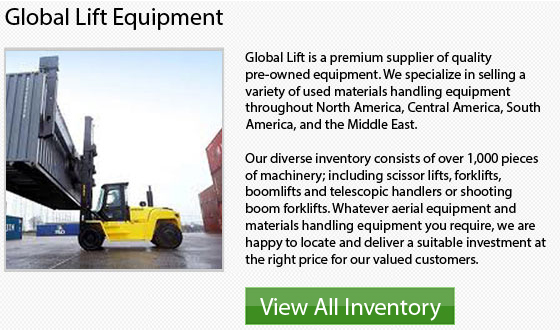
The lift truck has become such an important piece of machinery found and utilized in most warehousing and industrial operations, since its introduction to the market more than 90 years ago in the 1920's. One of the forklift's pioneers, Clark has grown to become an industry top supplier in the material handling business. Different other well-known names in the manufacturing of these machinery include: Toyota, Mitsubishi, Cat, Yale, Hyster and Nissan.
Hyster has grown to become amongst the most popular units of lift trucks in the industry. As a matter of fact, in some regions, the word "Hyster" is synonymous with forklift. Different other names for this industrial lifting machinery comprise: fork truck, stacker truck, jitney, high/low and lift truck.
The ancestor of today's equipment was initially made in the early part of the 19th century. At this time, battery-powered, small units were invented for the purpose of transporting traveler's luggage in Pennsylvania at the Altoona train station. During WWI, some different versions were made within England particularly for use in the material handling business. These machines evolved as a solution to the manpower shortage at that time.
The modern equivalents come in a variety of configurations and sizes. There are the big truck-mounted lift truck units which are also called sod loaders and then the opposite end of the spectrum has small hand truck models. There are also a line of automated versions referred to as forklift automated guided vehicles which are basically robotic in nature. These units were made as a way of lowering operational expenses and to improve production.
A regular lift truck is able to use a huge range of attachments which are capable of being added for a variety of specific functions. The motors could be internal combustion or IC models, running on propane, diesel or gasoline, or there are battery operated options that need regular charging. Standard warehouse units would normally be rated to lift between around 1 and 5 tons.
Since their evolution, forklifts have become a priceless part of the material handling industry. Thousands of these units are utilized each day throughout the globe to complete jobs which used to require a lot more man-power. Operators should take stringent training courses in order to safely and legally operate these heavy machines. Many employees have better health overall and longer careers now due to their not having to lift things by hand anymore since the forklifts could handle those situations now instead.